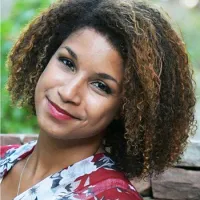The XX in Immunology
Where is the XX in immunology? Less than 30% of faculty in the UCSF Immunology department are women. That’s 13% less female representation than the UCSF-wide faculty demographic, where men still hold the majority.
An annual immunology symposium featuring all women speakers will be held for the first time at Parnassus on Monday, Oct. 22 from 9 a.m. to 5 p.m, in Nursing N-255.
This event is open to everyone in the UCSF community.
Immuno“XX” intends to achieve two goals: 1) provide a platform to highlight female scientists from UCSF, and 2) build a community of female immunologists to facilitate collaborations and provide career building opportunities.
Registration includes a networking lunch and evening cocktail hour in the Nursing Mezzanine.
This event was inspired by three students in the immunology graduate program, Camilia Azimi, Casey Burnett, and Tara Mcintyre, who said they were frustrated as first years by the lack of diversity at the faculty mentorship level. They decided to bring awareness by promoting the scientific accomplishments of women within the UCSF community.
Studies show that mentorship, sponsorship, and networks are critical in helping women reach senior positions.
“We believe our event will help jumpstart these networks for both the speakers and attendees who wish to participate,” Burnett said.
Mcintyre conveyed hope that this symposium strengthens UCSF’s community of women. “I think a lot of us are motivated and inspired by the people we surround ourselves with,” she said.
Four themes will be explored at this year's symposium: Tissue Immunology, Commensals & Microbiome, Tolerance & Autoimmunity, and Cancer Immunotherapy.
The women leading these topics include UCSF’s Dr. Anna Molofsky, Dr. Tiffany Scharschmidt, and Dr. Qizhi Tang, and keynote speaker Dr. Crystal Mackall from Stanford University.
Between faculty talks, an array of training students and PostDocs nominated by their PI’s will also present their work.
How did three first-year graduate students pull-off the start of an annual full-day symposium?
It took 10 months and no shortage of support.
UCSF faculty and administration as well as industry sponsors were enthusiastic about making the idea a reality.
Dr. Max Krummel played a key role, making the symposium an official recurring event of UCSF’s ImmunoX – an initiative to foster collaboration and cross-disciplinary approaches in immunology.
In fact, he has been instrumental in writing several female initiatives into the ImmunoX budget, including enhanced support for maternity leave.
The biomedical sciences graduate department, which houses immunology graduate students, also provided support in organization and logistics. BMS support included program director Dr. Mark Ansel, program administrator Demian Sainz, and assistant coordinator Ned Molyneaux.
Dr. Lewis Lanier helped secure Dr. Crystal Mackall as the keynote speaker, as a fellow colleague through the Parker Institute for Cancer Immunotherapy.
And of course, the women faculty members who agreed to speak were excited at fostering a supportive community for rising women in STEM.
Some even changed their clinical schedules and other commitments to attend the full event.
ImmunoX and Amgen are sponsoring the event, with other industry partners also interested in contributing.
The overwhelming and immediate support, especially from male faculty members, demonstrates that our community is interested and engaged in taking action to foster diversity.
It also demonstrates that the voices of three trainees can make a lasting impact.
Azimi made some poignant references to the larger issues our country is facing.
“With the #MeToo movement and Supreme Court nominations at the forefront of our political and social landscape, I think that we as a country are realizing that we are farther from true equality than we had originally believed. This is the moment for an event like this to take hold,” she said.
“Each person, male or female, that is in that audience on Oct. 22 will be doing their part to make STEM programs a representation of the communities they are serving.”
Certainly a lack in female representation and other forms of diversity in higher academic positions is not exclusive to immunology, or UCSF. Immuno”XX” engages a conversation we should all be having.
Clearly this is an event you don’t want to miss. Register here!
Alongside his annual all women’s symposium, Immuno”XX” is planning on creating new traditions and institutions within UCSF to help promote women in immunology and their scientific achievements.
For those who are particularly interested in this conversation, the event organizers recommend this article from Stanford on gender diversity in science.




